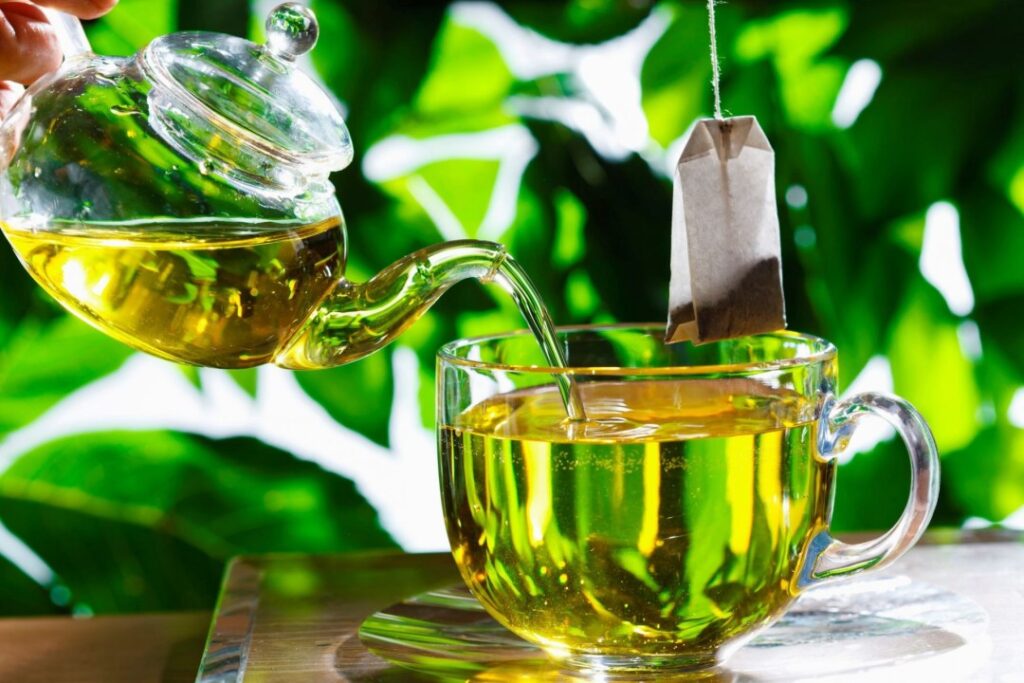Oolong tea, a traditional Chinese tea known for its unique flavor and variety, sits between green and black teas in terms of oxidation. The oxidation process for oolong tea is partial, giving it a range of tastes from floral and light to robust and rich. Here’s an overview of the benefits, nutritional content, and potential risks of oolong tea:
Benefits
- Antioxidant Properties– Oolong tea contains polyphenols, including catechins and theaflavins, which act as antioxidants. These compounds help neutralize harmful free radicals in the body, potentially reducing the risk of chronic diseases.
- Metabolism and Weight Management– Some studies suggest that oolong tea may help increase metabolism and fat oxidation, making it potentially beneficial for weight management. The caffeine and catechins in the tea may work together to enhance fat burning.
- Heart Health– Regular consumption of oolong tea may improve cardiovascular health. The antioxidants in oolong tea can help reduce LDL cholesterol levels and improve blood pressure, reducing the risk of heart disease.
- Cognitive Function– The combination of caffeine and L-theanine in oolong tea can improve alertness, concentration, and overall cognitive function. It may also have a calming effect, reducing stress and anxiety.
- Bone Health– Some studies suggest that regular consumption of oolong tea might help improve bone mineral density, which could be beneficial for maintaining strong bones.
- Skin Health– The antioxidants and anti-inflammatory properties of oolong tea may help improve skin conditions like eczema and reduce the risk of premature aging.
Nutrition
- Calories– Oolong tea is very low in calories, typically containing 0–2 calories per cup without added ingredients.
- Caffeine– The caffeine content in oolong tea can vary but generally ranges from 30 to 50 mg per 8-ounce cup, which is less than coffee but more than green tea.
- Vitamins and Minerals– Oolong tea contains small amounts of vitamins and minerals, including manganese, potassium, magnesium, and some B vitamins. However, the levels are not significant enough to be a primary source.
Risks
- Caffeine Sensitivity– While the caffeine content in oolong tea is moderate, it can still cause jitteriness, increased heart rate, or difficulty sleeping in sensitive individuals, especially if consumed in large amounts.
- Iron Absorption– Like other teas, oolong tea contains tannins, which can interfere with the absorption of non-heme iron from plant-based foods. Consuming tea with meals might inhibit iron absorption, potentially leading to deficiencies, especially in individuals with anemia.
- Potential Contaminants– Depending on the quality and source, some oolong teas might contain contaminants like pesticides or heavy metals. Choosing high-quality, reputable brands can minimize this risk.
- Allergic Reactions– Although rare, some people may experience allergic reactions to compounds in oolong tea. Symptoms may include skin rash, itching, or gastrointestinal discomfort.
Oolong tea can be a beneficial addition to a balanced diet when consumed in moderation. However, as with any food or beverage, it’s important to be aware of potential risks and consult with a healthcare provider if you have any concerns or pre-existing conditions.


